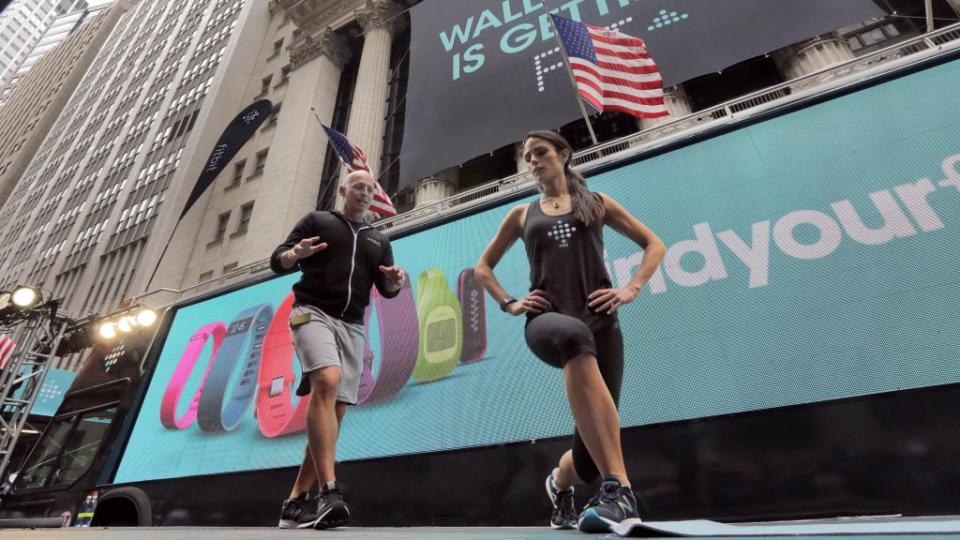Fitbit is acquiring Kickstarter darling Pebble to keep afloat

Just like its users, Fitbit is trying to stay healthy.
Fitbit announced Dec. 7 that it had acquired technology and personnel from Pebble. The former Kickstarter-funded company announced on its own site that it would shut down as a result of the sale.
Pebble was an early-mover in the wearables market, creating devices with low-power e-ink displays. It found a large niche following through its crowdfunding campaign for its original smartwatch, and its successive Kickstarter projects. At the time, the $10 million that customers pledged to back its first smartwatch in 2012 was the largest Kickstarter campaign ever. According to today’s announcement, Pebble has sold over 2 million devices since then.
Fitbit, which sells health-monitoring devices and wearables, went public in June 2015. After initial successes in the market, it’s seen its stock price fall precipitously. At one point Fitbit neared $50 a share, but is now trading at about $8. (Today’s news sent the price up 1%, about $0.08, at the time of publishing.)

The company has weathered the release of the Apple Watch, Apple’s entrance into the wearables space, and managed to maintain a dominant position in the still relatively small wearables market. It had 23% of the market share last quarter, up about 2% from the same period the year before, according to data released by analysis firm IDC this week.

But in November, Fitbit warned on its earnings call that it expects holiday sales to be flat—far below what Wall Street analysts had been expecting—which sent the company’s stock plummeting. CEO James Park put the slow growth down in part to production issues with Fitbit’s newest products, including the Flex 2 step tracker, Reuters reported.
In today’s release, Fitbit said that the acquisition of Pebble staff and technology will help it deliver new products faster, and help the company develop the “general purpose utility consumers value in a connected device.”

Pebble’s crowdfunding was once upheld as a new model for fledgling businesses to find their audience. Oculus, the company behind the Rift virtual-reality headset, also got its start on Kickstarter, and was bought by Facebook for $2 billion in 2014. But Pebble had some difficulties in raising investment funds outside of the crowdfunding world, and laid off a quarter of its staff in March.
With Pebble struggling to continue building off its early successes and enthusiasm around its products, and Fitbit wanting to get new products to market sooner, the sale seems to make sense. But it’s unclear whether Fitbit will be able to see itself through a rough holiday quarter and continue growing, or wether it’ll suffer the same fate of other recent hardware startups, such as GoPro, which is also struggling as a public company, or former rival Jawbone, which may also be gearing up to be sold.

Sign up for the Quartz Daily Brief, our free daily newsletter with the world’s most important and interesting news.
More stories from Quartz:

 Yahoo Finance
Yahoo Finance 